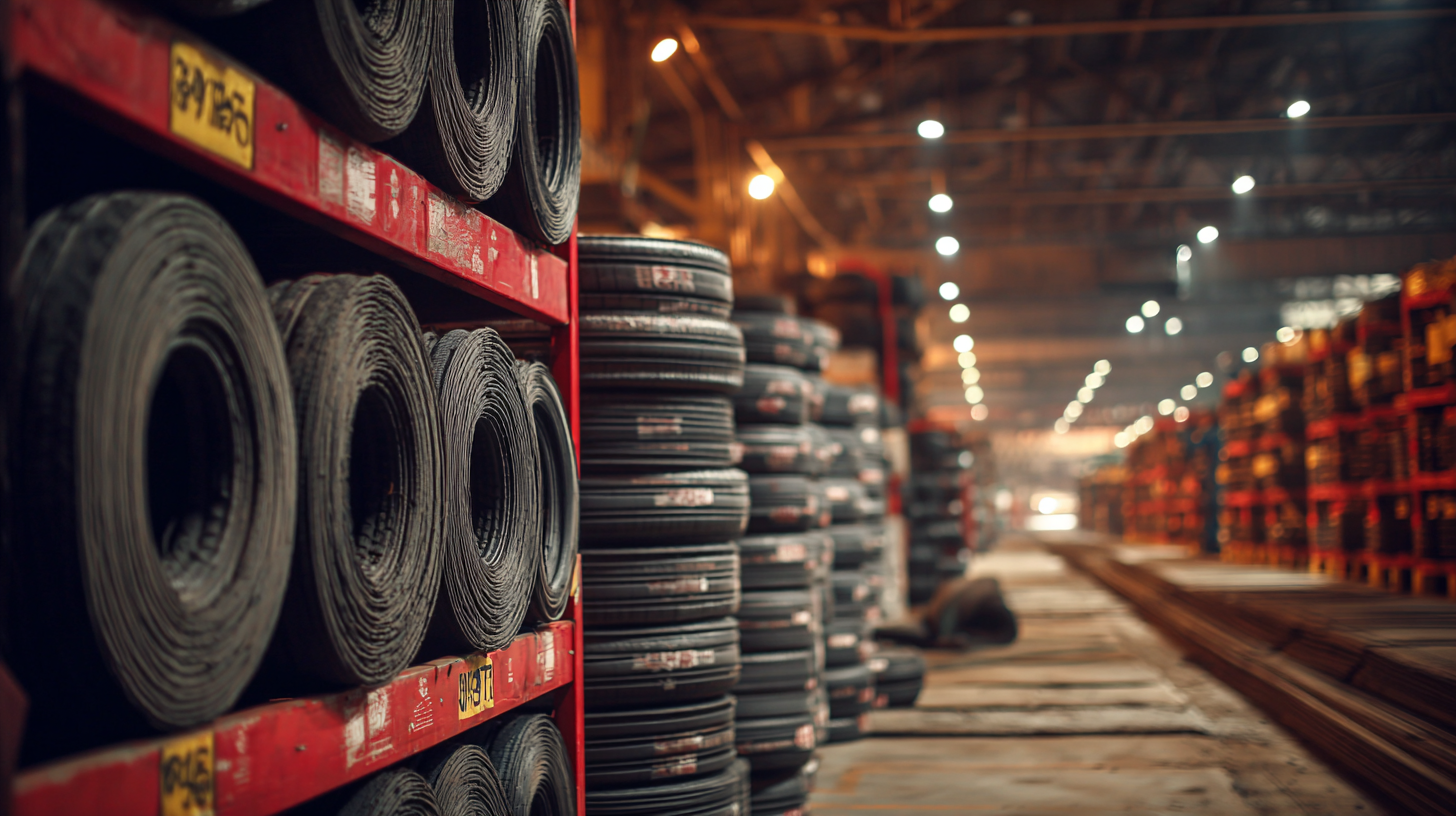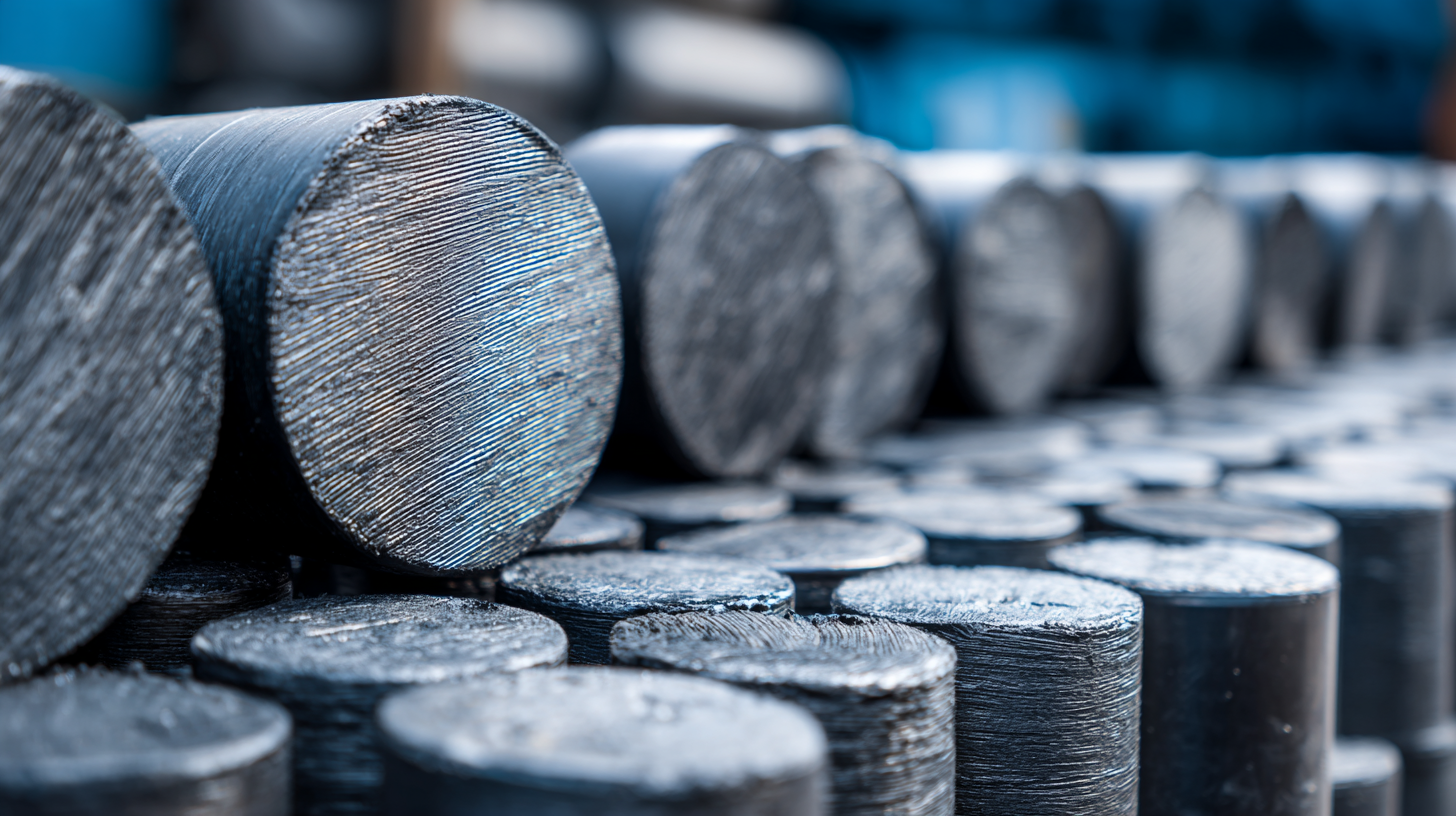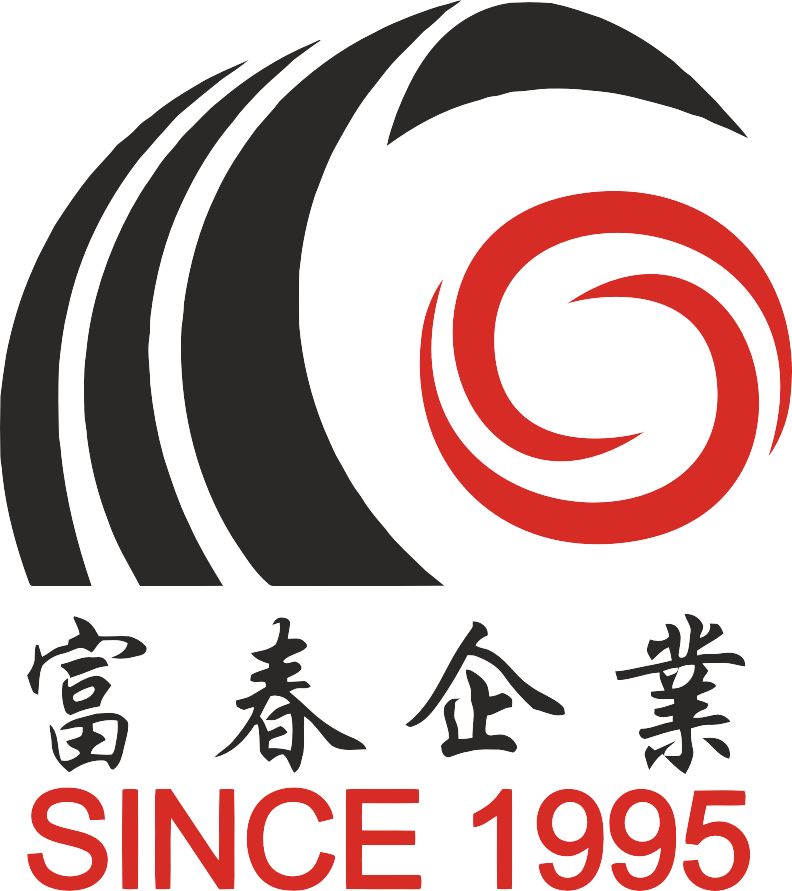Leave Your Message
In the dynamic world of international trade, understanding the nuances of import and export certifications is crucial, especially for industries reliant on high-quality materials like Butyl Rubber. Known for its exceptional impermeability to gases and its versatility in various applications such as automotive, construction, and medical sectors, Butyl Rubber represents a significant market segment. According to a recent industry report by Grand View Research, the global Butyl Rubber market is projected to reach USD 4.5 billion by 2026, growing at a CAGR of 5.9%. As manufacturers and suppliers navigate the complexities of regulatory compliance, having a clear grasp of the necessary certifications can not only streamline the export process but also enhance product credibility. This blog will explore the types of certifications essential for navigating the import and export landscape of Butyl Rubber products, ensuring companies remain competitive and compliant in a rapidly evolving marketplace.

Butyl rubber, a synthetic rubber prized for its impermeability and flexibility, boasts essential technical characteristics that make it ideal for various applications, from automotive manufacturing to pharmaceuticals. Its unique polymer structure, providing an excellent barrier against gases and chemicals, is supported by specific industry standards such as ASTM D471 and ISO 1629. According to a recent market analysis by Grand View Research, the global butyl rubber market is projected to reach USD 3.3 billion by 2025, indicating a growing demand attributed to its diverse functionalities.
Moreover, key performance indicators of butyl rubber include its high resilience, low permeability, and outstanding heat resistance. For instance, butyl rubber exhibits a permeability rate for air as low as 0.2 mg/day·cm²·atm, significantly outperforming other synthetic rubbers. This property is particularly beneficial in automotive tire manufacturing, where air retention is crucial to enhance fuel efficiency. Additionally, butyl rubber's ability to comply with international quality standards, such as REACH and RoHS, ensures that products meet safety and environmental regulations, thus appealing to manufacturers aiming for sustainable production while maintaining high-quality deliverables.

When it comes to importing butyl rubber products, understanding the essential certifications required can significantly streamline the process. One crucial certification to be aware of is the BIS (Bureau of Indian Standards) certification, which will become mandatory in India for a range of product categories by 2025. This includes chemicals, making it essential for foreign manufacturers to familiarize themselves with the compliance standards set by the BIS to ensure their products meet the required safety and quality benchmarks.
In this comprehensive guide, we delve into the specifics of obtaining import certifications for butyl rubber products aimed at the Indian market. The BIS certification not only assures consumers of product quality but also enhances a manufacturer's credibility. Companies looking to navigate the intricacies of these certifications should prepare for a rigorous documentation process, including tests for chemical composition and safety standards. By diligently adhering to these guidelines, manufacturers can enhance their chances of successful market entry and establish a foothold in India's growing demand for high-quality butyl rubber products.

When exporting butyl rubber products, understanding international regulations is crucial to ensure compliance and successful market entry. As global demand for butyl rubber rises, particularly in the automotive and tire industries, manufacturers must navigate a labyrinth of export certifications and standards tailored to various regions. Each country may have distinct requirements regarding safety, environmental impact, and product specifications, making it essential for exporters to stay informed and adaptable.
Additionally, the growth of the reclaimed rubber market is poised to influence the dynamics of butyl rubber exports significantly. Advances in recycled rubber technology not only benefit the environment but also enhance the mobility industry by providing sustainable alternatives. As countries tighten regulations surrounding sustainability and waste management, exporters of butyl rubber products will likely find themselves under increasing pressure to demonstrate compliance with new eco-friendly standards. This shift not only affects existing practices but also emphasizes the importance of innovation and transparency in the certification process for those looking to compete in the international market.
Butyl rubber is widely recognized for its superior impermeability and flexibility, making it a crucial material in various industries, including automotive and medical sectors. When sourcing butyl rubber products, understanding the relevant quality assurance certifications is essential. Notably, certifications such as ISO 9001 and ASTM D2000 not only evaluate the management systems and performance but also indicate a commitment to maintaining high quality. According to a recent analysis by MarketsandMarkets, the global butyl rubber market is projected to grow from $3.2 billion in 2020 to $4.5 billion by 2025, highlighting the increasing demand for certified products that adhere to rigorous quality standards.
Tips: When sourcing suppliers, prioritize those that possess relevant certifications. Conduct audits to verify their compliance with international standards, which can provide a level of assurance regarding the quality and reliability of the butyl rubber products. Additionally, look for companies that participate in third-party verification and continuous improvement programs, ensuring they stay updated with the latest industry practices.
It's crucial to consider environmental compliance certifications as well. Products bearing certifications like REACH or RoHS not only meet safety regulations but also reflect the manufacturer’s commitment to sustainability. By paying attention to these certifications, businesses can mitigate risks while enhancing their brand reputation in the competitive butyl rubber market.
In the world of manufacturing, compliance with industry norms and standards is essential for producing high-quality butyl rubber products. According to a report by Freedonia Group, the global demand for butyl rubber is expected to grow by 5.1% annually, reaching 2.1 million metric tons by 2024. To capitalize on this growing market, manufacturers must adhere to rigorous certification requirements, including ISO 9001 for quality management systems and ISO 14001 for environmental management. Implementing these standards not only enhances product quality but also elevates a manufacturer's reputation in the competitive landscape.
Moreover, staying updated on industry regulations is crucial for successful import and export operations. As per the American Society for Testing and Materials (ASTM), approximately 25% of companies face disruptions due to non-compliance issues. Manufacturers should establish a robust compliance program that includes regular audits and employee training to mitigate risks associated with certifications. By emphasizing best practices, such as adhering to material safety data sheets (MSDS) and ensuring proper labeling, manufacturers can not only avoid costly penalties but also foster trust with their international partners.

